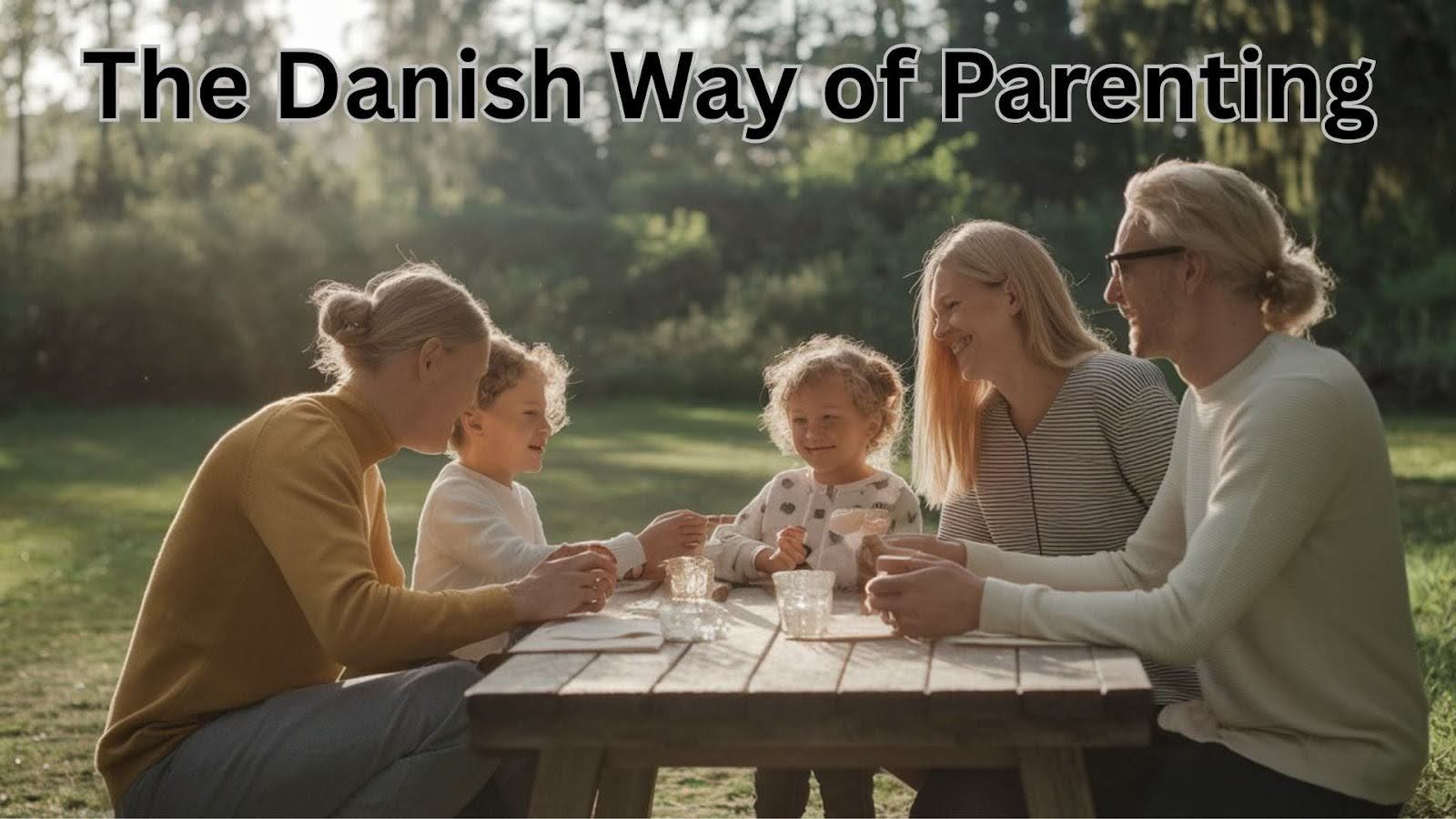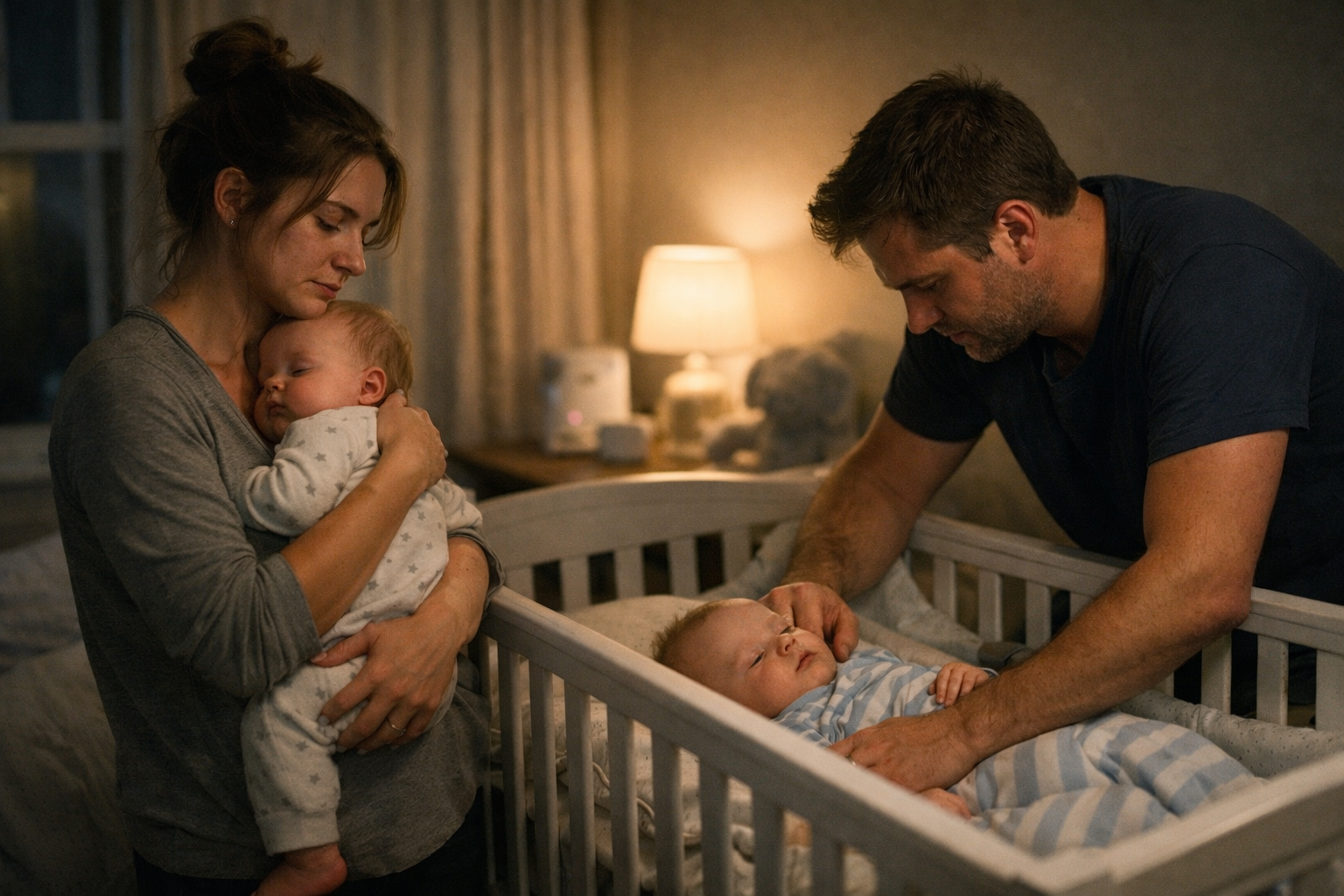Denmark has topped happiness rankings since 1973. Yet nobody could explain why.
After studying Danish families for years, I found the answer. It’s how they raise their children. This article reveals six core principles that make Danish parenting so effective.
Your daily struggles with screen time and defiant behavior aren’t unique. Danish families have cracked the code. You can trust these research-backed methods that sold over 10,000 copies.
“Happy kids grow up to be happy adults.” I’ll show you how to update your parenting today.
The PARENT Acronym – Six Core Principles
I learned about Danish parenting methods. They work well. These six simple steps can help you raise happier kids. Let me show you how.
Types of Play and Their Benefits

Children benefit from different kinds of play. When they play alone, they work through new ideas and think about their day. This quiet time helps them grow stronger inside.
When adults join in, they need to be completely real. Kids notice when grown-ups are pretending or not being honest. Real connection matters most.
The more children play without rules, the better they get at making friends and fixing problems. Free play teaches them skills they’ll use their whole lives.
Praise and Recognition Patterns

Instead of saying “Good job,” try asking “What is it?” Focus on how hard they worked, not just how smart they are. Skip praising things that come too easily for them.
When kids always hear “You’re so smart,” they stop trying difficult tasks. They get scared of making mistakes or looking less smart.
Questions about their process help them think deeper. This builds a mindset that grows stronger over time. They learn that effort matters more than being perfect.
Practical Reframing Techniques

Sometimes kids act out because they’re tired or hungry. Bad behavior doesn’t mean they’re bad kids. Look for the good things they do instead.
Pay attention to your own negative thoughts about your child. Try to see the positive side first. This helps them feel loved and valued.
Kids need to know they’re okay even when their actions aren’t. Practice catching yourself when you think negative thoughts. This takes time, but gets easier.
Building Empathy Through Literature and Discussion

Reading makes kids care more about others. Read all types of books, even sad or scary ones. Every person in the family should get to talk, not just the loud ones.
Help kids see things the way other people do. This builds their emotional smarts. Stories show different ways people feel and act.
Talking about books helps them understand others better. They learn that people have different reasons for what they do. This skill helps them throughout their whole lives.
Discipline Strategies and Boundary Setting

How you see kids changes everything. If you think they’re good inside, you’ll be kinder to them. Power fights make everyone lose, so stay calm when fixing their behavior.
For serious things like hitting, be firm. Say “No!” clearly. Hold them and explain why it’s wrong. Make sure they understand the rule.
Don’t make every correction into a big fight. Pick your battles wisely. Most problems can be solved with calm words and care.
Practical Togetherness Applications

Add connection to your daily routines. Eat meals together and be present during family time. Danish parents tell their kids: “Eat this so you’ll be big and strong!” This creates a warm feeling.
Use good lighting and fun activities to bring people closer. Quality time matters more than how much time you spend. Focus on being engaged when you’re with them.
These moments last forever in their hearts. Make the time you have together count. Simple activities can create the best memories.
Implementing Danish Principles in Your Family
Finding your parenting style means looking at how you were raised, watching your reactions, pausing before responding, letting kids solve problems alone, making small changes one at a time, and being patient as you build better habits.
- Look at yourself first: What do you copy from your own parents? Keep the good things. Change what doesn’t work.
- Study your reactions: Notice how you respond to your kids automatically. Some help them grow. Others don’t.
- Choose your responses: You can pick different ways to react. Take a moment before you speak or act.
- Let kids struggle sometimes: When you want to help, take a breath first. They learn from working things out alone.
- Step back when needed: Kids need to do things by themselves. This builds confidence and important life skills.
- Start with small changes: Pick one thing to work on. Don’t try to fix everything at once. Small steps work better.
- Adapt to your family: These ideas work anywhere. Change them to fit your culture and home situation perfectly.
- Focus on what you control: You can’t change everything around you. Work on your own family first.
- Practice new habits slowly: Build one good pattern at a time. This makes changes stick better than rushing.
- Remember it takes time: Be patient with yourself and your kids. Good parenting habits grow slowly but surely.
Conclusion
The Danish way of parenting really works because it’s simple and kind. These six steps help you raise happier, stronger kids without stress or fights.
You don’t need to be perfect. Start with one small change. Maybe let your kids play freely today. Or ask “What were you thinking?” instead of just saying “Good job.”
Your family can be happier. Danish parents prove that calm, honest methods work better than yelling or threats. Trust your kids. They want to do well.
Try one new thing this week. Which PARENT step will you start with? Share your thoughts below or tell another parent about these ideas.
Frequently Asked Questions
What is the Danish way of parenting?
The Danish way of parenting follows the PARENT method: Play, Authenticity, Reframing, Empathy, No Ultimatums, and Togetherness. Danish parents focus on free play, honest communication, positive language, teaching emotions, calm authority, and family connection time.
Why does the Danish way of parenting work so well?
It works because it treats children as naturally good people. Kids feel respected and safe. This builds trust and cooperation instead of fear. Danish methods create happier families with less stress and fighting.
Can I use Danish parenting methods in other countries?
Yes! These ideas work anywhere. You can adapt them to fit your family’s culture and needs. The core principles of respect, honesty, and connection work in every country and home situation.
How do I start using the Danish way of parenting?
Pick one PARENT principle to try first. Let your kids play freely, give honest answers to questions, or focus on family time together. Start small and build new habits slowly over time.
What makes Danish children happier than other kids?
Danish kids feel heard and valued. Their parents don’t use fear or threats. They learn to handle problems through play and honest talks. This builds confidence and emotional strength from an early age.








